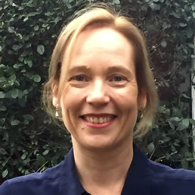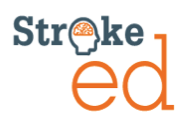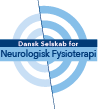
3-day lower limb workshop Århus
oktober 28 -9:00 - oktober 30 -16:00
4.000,00DKK
Dansk Selskab for Neurologisk Fysioterapi annoncerer hermed 4 kurser med australske undervisere. Denne gang foregår de på Århus Kommunes Neurocenter og Rigshospitalet Glostrup. 2 OE kurser og 2 UE kurser.
 OE kurserne – her er underviserne Annie McCluskey og Karl Schurr
OE kurserne – her er underviserne Annie McCluskey og Karl Schurr
UE kurserne – her er underviserne Simone Dorsch og Karl Schurr.
Kurserne foregår på engelsk.
Tid og sted:
3-day lower limb workshop Monday 28th October to Wednesday 30th October 2024
Adresse: Århus kommunes Neurocenter, Evald Kroghs gade 1c eller 9, 8000 Århus C
Deltagere: 22 Fysioterapeuter kan deltage på hvert kursus.
OBS: Kun fysioterapeuter som er medlem af Dansk Selskab for Neurologisk Fysioterapi kan deltage.
Man kan melde sig ind og deltage.
Pris: 4000kr for 3-dags kursus, incl. forplejning under kurset.
Tilmelding: via www.neurofysioterapi.dk – bindende tilmelding og max. 2 pr. arbejdsplads
(Dette for, at sikre geografisk spredning. Hvis kurset ikke fyldes op, kan flere end 2 fra samme arbejdsplads deltage)
Kontakt v. spørgsmål: sinesecherm@hotmail.com
Tilmeldingsfrist: 1.oktober 2024
Evidence-Based Retraining of Lower Limb skills after Stroke
This course has been developed over the last 20 years and continues to evolve as new evidence is published. The background to the development of this workshop was the clear need for an evidence informed workshop for therapists which included the following features:
- Biomechanics of movement: Inclusion of published scientific observations of skills such as sitting balance, standing up, walking, ascent and decent of stairs and There is now sufficient scientific knowledge of the kinematics (“what we see”) and kinetics (the forces that cause what we see”) to clearly outline the essential features of these skills.
- Essential components of skills: Lists are provided of the common features (essential components) of how people move. These lists of essential components are used for comparison with people who have movement difficulties
- Analysis of abnormal movement: The essential components of these skills are used to analyze people with movement problems. Video tapes of stroke survivors are used initially to practice analysis These analysis skills are then used to analyze stroke survivors in clinical sessions on each of the 3 days.
- Knowledge of current evidence of effective interventions: Review of current stroke guidelines and high-quality published evidence of effective interventions are presented and discussed to help clinicians provide the best current interventions for people they are The workshop aims to assist therapists to understand and distinguish the differences between evidence and opinion.
• Knowledge of effective coaching skills: Current evidence of effective teaching strategies which optimize the learning environment for people after brain injury is presented. Clinicians then practice and evaluate their own coaching skills in clinical sessions with stroke survivors.
The course manual provides all the PowerPoint slides, an extensive reference list for clinicians to use, as well as worksheets which are used in the clinical sessions. These worksheets can be used to practice clinical skills after the course. Therapists are encouraged to use the manual for their own clinical continuing education with work colleagues.
Target audience: The course will be of interest to physiotherapists, who teach and train adults following stroke and acquired brain impairment. The focus is on lower limb retraining and involves practical sessions with stroke participants.
Course participants: The small cohort of therapists participating the course enables groups of 3 to work with stroke participants and receive feedback about analysis, training strategies and coaching skills from presenters during clinical sessions.
| Undervisere | ||
 Simone Dorsch Simone Dorsch |
|
Simone is a physiotherapy clinician, researcher and educator. She has 20+ years’ experience in stroke, brain injury and aged care rehabilitation. Simone is a senior lecturer at the Australian Catholic University in North Sydney.
Research and publications: Simone has published 12 peer reviewed journal articles. Her research focuses on the relationship between loss of strength and activity limitations and strategies to increase practice intensity in rehabilitation and improve outcomes. |

Karl Schurr
Clinical experience: Stroke and brain injury rehabilitation for 30 years + in Australia and UK.
Was senior physiotherapist at the stroke unit, Bankstown-Lidcombe Hospital, Sydney, Australia.
Presents regularly at workshops and conferences in Australia and overseas.
Research and publications – published over 20 peer reviewed journal articles.
Learning objectives – This workshop aims to increase participants’:
- Awareness of the key aspects of a being an evidence based clinician
- Ability to apply that knowledge to the rehabilitation of people following stroke or traumatic brain injury
- Knowledge of the biomechanics of sitting and standing, standing-up and sitting-down and walking
- Ability to analyze movement problems in these skills, considering neural, biomechanical, musculoskeletal and environmental
- Ability to distinguish between compensations and missing essential components
- Ability to plan and implement appropriate training strategies for the analyzedmovement
- Ability to objectively evaluate the effectiveness of the chosen training strategy
- Ability appropriately modify these training strategies in response to changes in the patient’s performance
- Ability to critically evaluate and modify teaching skills to optimize practice, training, and motivation.
Kursusprogram:
- Ændringer i programmet kan forekomme.
| DAY ONE | |
| 9.00 | Registration |
| 9.30 | Introduction and Evidence-based practice |
| 10:30 | Impairments after stroke -part 1 |
| 11.00 | Morning tea |
| 11:20 | Impairments after stroke -part 2 |
| 11:50 | Increasing strength in very weak muscles |
| 12:45 | LUNCH |
| 13:15 | Intensity of practice |
| 13:45 | Practical session: Weightbearing in sit and reach |
| 14:45 | Sitting Biomechanics, analysis and intervention |
| 15:30 | Afternoon tea |
| 15:50 | Postural adjustments and Standing |
| 16:20 | Standing analysis and intervention |
| 17:00 | Clinical session 1: Assessment and analysis of stroke survivors by presenters |
| 18:00 | Discussion and questions |
| DAY TWO | |
| 8:00 | Practical session: Standing up and Standing |
| 9.00 | Standing up: Biomechanics, analysis and intervention |
| 10:00 | Morning Tea |
| 10:20 | Walking: biomechanics |
| 11:30 | Being a coach |
| 12:30 | LUNCH |
| 13:15 | Clinical session 2: Review of overnight practice |
| 14:00 | Clinical session 3: Clinical session with stroke survivors in 8 small groups |
| 15:30 | Afternoon tea |
| 16:00 | Discussion and questions |
| DAY THREE | |
| 8.00 | Review of walking biomechanics |
| 9:00 | Walking: Analysis |
| 10:00 | Morning Tea |
| 10:20 | Walking: Evidence-based intervention |
| 11:30 | Muscle testing and progression – practical |
| 12:30 | LUNCH |
| 13:15 | Clinical session 4: Review of stroke survivor’s practice & progression |
| 14:15 | Handover |
| 14:30 | Clinical session 5: Analysis & training of new stroke survivor in small groups |
| 15:30 | Afternoon tea and Celebration of Practice |
| 16:00 | Statement of personal goals. |
For more details: www.StrokeEd.com (Facebook page: StrokeEd)

Established in 2011, the StrokeEd collaborators aim to provide evidence-based workshops that improve the skills, knowledge and practice of students and neurorehabilitation therapists, and influence the delivery of physical rehabilitation services to stroke survivors.
All four members of the StrokeEd Collaboration are:
- Experienced clinicians, educators, and active researchers
- Recognised leaders in their profession
- Higher research degree graduates (PhD or master’s by research)
- Providers of rehabilitation in public and/or private health, including tele-rehabilitation
- Registered physiotherapists and occupational therapists
Our Mission: To teach evidence-based stroke rehabilitation, to optimise recovery post-stroke.
Our Vision
- That graduate physiotherapists and occupational therapists have the skills, knowledge, confidence, and competence to routinely deliver evidence-informed physical rehabilitation.
That stroke survivors receive prompt, evidence-based rehabilitation regardless of their geographic location, ability to pay, age or the experience of treating therapists.


